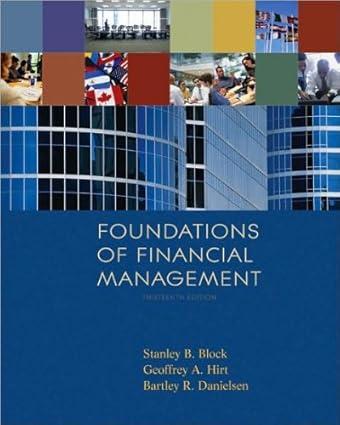Question
Auditing The King Code of South Africa is a apply and explain code. i. The King Corporate Governance Code is not contained in any statute/Law.
Auditing
The King Code of South Africa is a "apply and explain" code.
i. The King Corporate Governance Code is not contained in any statute/Law.
ii. Companies may opt to ignore the recommendations of the Code, as long as it explains.
1.Which of the following is CORRECT in relation to the above statements? a. None of them b. Both i and ii c. i only d. ii only
2.According to the King Code of South Africa 2016, independent non-executive directors should be appointed to the board of listed companies.
This is to ensure: a. Non-executive directors are more experienced than executive directors b. It is cheaper to recruit non-executive directors than executive directors c. It is more difficult to remove non-executive directors from the board than executive directors d. Non-executive directors are perceived to be more independent than executive directors
3.The internal audit function is least effective when the department: a. Is competent. b. Is non-independent. c. Is objective. d. . Exhibits integrity
4.An organizations appropriate tone at the top promoting ethical conduct is an example of: a. Ethical behaviour. b. Ethics incentives. c. Consequentialist d. Ethics sensitivity.
5.An independent director is one who: a. . Does not have outside relationships with other directors. b. Did not attend a school supported by the company. c. All of the above d. Does not have any other relationships with the company other than his or her directorship.
6.Ethics is concerned with which of the following matters? a. The possibility that inappropriate behaviour will be detected b. A written set of rules with which members of a profession must comply c. Ensuring that persons acting inappropriately are punished accordingly d. Requirements for the general wellbeing, prosperity and happiness of people and things that will promote or prevent them
7.To ensure the independence of the non-executive board members, they are a number of steps which can be taken, which include non-executives being drawn from _______ the company, being appointed for a _________ time period as well as being appointed _________. a. Inside, Unlimited, Independently b. Outside, Unlimited, Intermittently c. Inside, Limited, Intermittently d. Outside, Limited, Independently
8.The relationship between shareholders and the company, or so called ________, describes shareholders as _________ and managers of the company as ________. a. Stakeholder management, Agent, Principals b. Stakeholder management, Principal, Agents c. Agency relation, Principal, Agents
Agency relation, Principal, Agents
Agency relation, Principal, Agents
Agency relation, Principal, Agents Agency relation, Principal, Agents d. Agency relation, Agent, Principals
9.The main objective of financial audit is________ a. Designing internal control system b. Expression of opinion c. All of these d. Detection and prevention of fraud and error
10.Ethics concerns itself with what is good or right in human interaction a. true b. false
11.Independence comprises a. Independence in appearance b. Independence of the mind c. Both (a) and (b) d. None of these
12.If auditor maintains high degree of independence, it will result in a. Good relationship with the entity b. Enhanced reliability on financial statements c. Attention of media d. Reward by CG
13.Which of the following is not component of financial statement a. Boards Report b. Balance Sheet c. Notes to Accounts d. Profit and Loss Account
14.In the financial audit, the auditor expresses opinion on a. True and Correct view of financial statements b. True and Fair view of financial statements c. Business operation of the entity d. Effective operation of internal control system
15.Pick the odd one a. Audit Report b. Cash Flow Statement c. Balance Sheet d. Profit & Loss Account
16.An audit which is compulsory by law is called as a. Statutory Audit b. Cost Audit c. Internal Audit d. Government Audit
17.Which of the following is not basic principle of auditing a. Integrity, Objectivity and Independency b. Audit Planning c. Written Representation d. Confidentiality
18.Auditor must have sound knowledge of a. All of above b. Auditing c. Clients Nature of Business d. Accountancy
19.At any AGM, a retiring auditor may be re-appointed if a.
A special resolution has not been passed at AGM appointing some other auditor or providing expressly that he shall not be reappointed. b. All of the above c. He is not disqualified for re-appointment d. He has not given the company a notice in writing of his unwillingness to be re-appointed
20.Which of the following is responsibility of auditor a. To ensure that financial statement comply with applicable financial reporting framework b. To ensure compliance with laws and regulations applicable on the entity c. To express an opinion on true and fair view of the financial statements. d. To design, implement and maintain system of internal control.
Step by Step Solution
There are 3 Steps involved in it
Step: 1

Get Instant Access to Expert-Tailored Solutions
See step-by-step solutions with expert insights and AI powered tools for academic success
Step: 2

Step: 3

Ace Your Homework with AI
Get the answers you need in no time with our AI-driven, step-by-step assistance
Get Started


